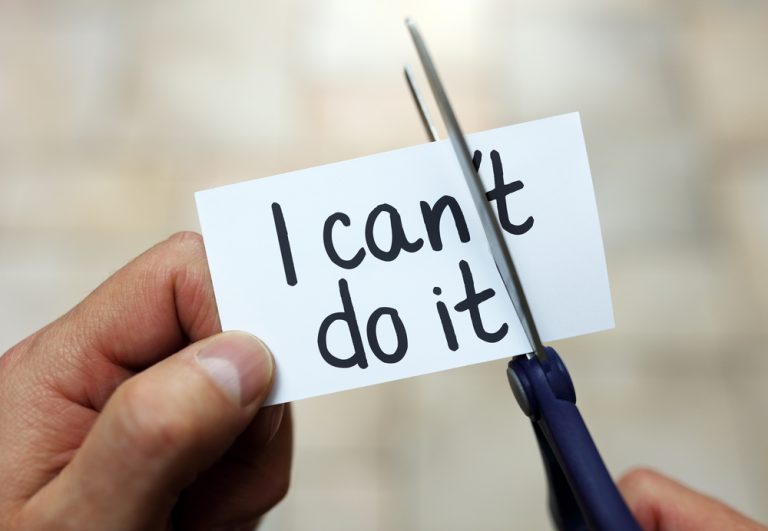“I have no time …”
“Twenty-four hours just isn’t enough.”
“I want to have freelance jobs … ”
We’ve all uttered at least one of these phrases at some point in our lives. Many of us think that freelance jobs will give us freedom and we’re craving it. We’ve had moments when we’ve undoubtedly felt harassed, stretched out beyond belief or staggering under the weight of an immense workload. “I want freelance jobs to be free” is probably something some of us have said. Situations like these can prove extremely stressful, potentially carrying substantial negative impacts on one’s daily lives. This could include physical manifestations of stress such as headaches, stomach upsets and burnout; strained relationships with family and friends. There could also be alterations in eating and sleeping patterns.
Though it may prove difficult to pin down such overwhelming sensations to just one cause, it’s certainly no secret that work-related stress plays a huge part.
You may have to deal with a highly demanding job, are required to put in many more hours than you are comfortable with, or experience regular conflict with your colleagues or superiors. Your chosen occupation may potentially come with severe physical, psychological and behavioural implications.
Freelance Jobs
Even though you may have been led to believe otherwise – freelance jobs or working from home is certainly no different. Remote workers do benefit from several distinct advantages over their 9-to-5 counterparts. However, they are also faced with a contrasting set of challenges. This includes lack of social interaction, longer hours and the lack of a defined distinction between one’s working and family life.
Striking a balance is key to getting the most out of your digital occupation. Flexibility and comfort may all seem very well – however, these may easily turn into a double-edged sword if not handled correctly. Careful time management is of utmost importance to facilitate your productivity with minimal disruption to your home life. Read on for our top do’s and don’t for becoming master of your own time and successfully coping with freelance jobs.
DO split your workload into manageable chunks
Are you capable of working for hours at a stretch or do you prefer to spread yourself out over the day? Being aware of your own working style will help much in planning your workload. Devise a timetable and do your best to stick to it. Research shows that routine significantly improves well-being, health and productivity.
DON’T do too much – or too little
Having a reasonably balanced timetable means that you’ll be able to work more or less the same amount each day. This may turn out very beneficial in the long run. Working for extended periods may have you losing focus and turning in lower-quality work. On the flip side, working in short bursts will not give you enough time to settle down into your tasks, resulting in shoddy, decidedly unfinished-looking work.
DO keep a work record
Keeping a record of what you’ve done so far will only take a few minutes of your time each day, and, believe me, it’s worth that little effort. Having a detailed work record enables you to pick up straight where you left off the day before. It also enables you to note patterns in your working style that you might not have been previously aware of.
DON’T work when you’re sick
One of the great things about working from home is that you can allow yourself a little leeway here and there. Learn to recognise those days when you are unable to work. Just because you’re working from home, doesn’t mean that you aren’t entitled to sick days. Make it a point to check with your employer what your rights are. If you have freelance jobs, you can make up the lost hours on other days.
DO have your own office space even though you have Freelance jobs
Whether you can work all morning or can just spare a couple of hours before you go to bed, having your own space is an important prerequisite to working from home, and one that is often overlooked. There’s no way you can be productive if you’re regularly opening your laptop on the kitchen table in the midst of a chaotic family dinner. Though this may sound laughable, it does happen! However small or large your home is, try to give some serious consideration to creating a place you can identify as your own. Even if it’s just a corner and a rickety old desk. Make sure that everyone in the family knows you can’t be disturbed while you’re there. If you’re someone who needs absolute quiet in order to be able to work, there’s no harm in shutting yourself away or investing in a good pair of headphones. Get tips on how to set up your office space when you’re a freelancer.
DON’T procrastinate
Procrastination is one of the worst enemies for remote workers, especially for those of us who are inclined to dawdle! Putting off tasks until a later date will only cause your workload to accumulate. It also will cause unnecessary stress and result in poor quality work.
DO sync your devices
Digital nomads excel at working on the go and here’s where modern technology can give you much, much more than just a helping hand. Google Drive is one example of a nifty application that enables you to sync all your devices, meaning you can edit documents even while you’re not at home, with all your data saving automatically. And, with the availability of wi-fi taken almost mandatory in most public places, there’s really no reason why you should shut yourself away to do some work!
DON’T take up all of your free time
Twenty-four hours can be surprisingly short if you don’t manage your time well. Be kind to yourself and factor in some free time when sorting out your timetable. Even if it’s just a cup of coffee between tasks. Regular breaks will increase your productivity in the long run. If you make the mistake of spilling into your leisure time, you’ll start to resent your job.
DO clear your schedule
Though finishing all your laundry, walking the dog, and cooking may seem pressing, you’ll soon find that you’ll have to pick and choose what chores you can complete while you’re working. If not, you will find you haven’t completed an hour of solid work at the end of your workday. Let other members in the family pick up the slack if they’re willing to. Failing that, you can build in a couple of chores into your timetable each day.
DON’T leave your phone on
Beeping notifications and vibrating texts may turn out to be the bane of your existence if you’re a remote worker. Turn your phone OFF or put it on silent while you’re working. You won’t get anything done if you’re checking your Instagram every five minutes! Make it a point to give the social media a rest for the duration of your workday. If you really must, reward yourself by checking in at the end of every hour or completed task.
Lastly, DO refer to this guide – penned by a remote worker just like you!








